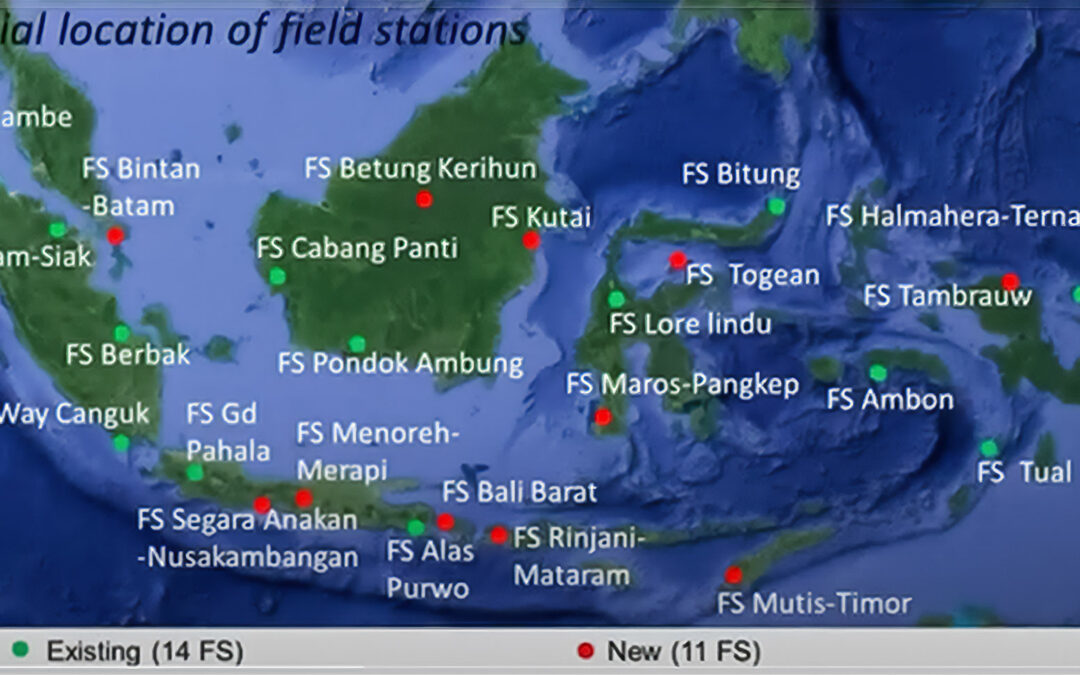TOF for the German Development Bank (KfW) conducted environmental and social (E&S) screening of 25 field stations in Indonesia for an ambitious and innovative project in Indonesia. The INABRAIN Project
– Acquisition of Indonesian Biodiversity as Fundamental Sources for Research and Innovation (INABRAIN). Screening benchmarks include the World Bank ESS, KfW Sustainable Guidelines, IFC PS2, and UN-Human Rights. Outputs include an ESMF, SEP and Screening Report with Field Station Profiles.
The Indonesian National Research and Innovation Agency (BRIN) is planning the project INABRAIN that aims to boast Indonesian biodiversity research activity and capacity to support sustainable use and conservation of biodiversity. The main objective of INABRAIN is to accelerate bioprospecting apart from supporting climate, environmental and biodiversity (terrestrial and coastal monitoring. BRIN is to leverage management and development of research facilities in 25 locations across Indonesia. The construction (expanding, rehabilitation and building new) of facilities will require land use, waste management facilities, and thus may have environmental and social impacts during construction and operation. Some of the field stations are located in or near biodiversity hot-spot areas, have indigenous people or other local community lands, and protected areas.
See also: BRIN website (BRIN – Badan Riset dan Inovasi Nasional) and Profil Field Station INABRAIN – YouTube

